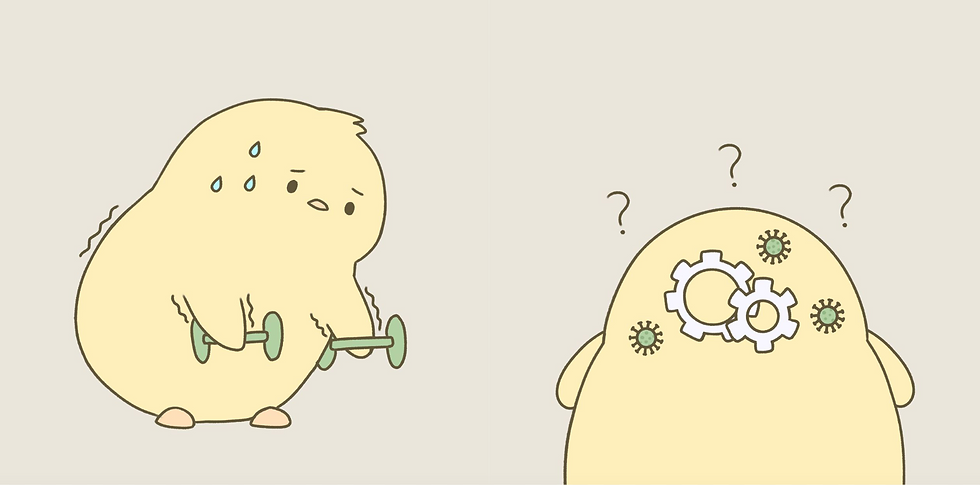How does COVID-19 affect mental health?
- Ruka Arakaki
- Oct 31, 2022
- 2 min read
Updated: Jan 7, 2023
Researcher & Writer: Ruka ARAKAKI
Illustrator: Mia YUNG
Since covid arose in 2020, the effect of isolation and even getting the virus could be a factor in depreciating mental health.
Those living in a house surrounded by abuse may be at higher risk of more serious mental health issues while staying in their home under lockdown. Statistics show that 45% of women had experienced abuse during the first year of the pandemic.

Moreover, with the whole world being on lockdown, mental health services such as face-to-face counselling had been temporarily suspended making it difficult for some to cope with the pandemic. Additionally, at the beginning of the pandemic when not a lot was known about the virus, the fear of getting infected has been a factor in increased fear and anxiety. Furthermore, due to the fear, others may be reluctant to get help in a hospital because they’re worried about getting the virus.
Those who have been infected may experience “long COVID”. Typically, people who have gotten the virus recover within a few weeks. However, COVID can have long-term effects affecting both physical and mental health. Some psychological symptoms of Long COVID are anxiety, depression, mood swings, memory, and concentration problems, and sleep disturbance. According to the University of California, San Francisco, the origin of the symptoms is unknown but there are some possibilities as to why they occur. COVID-19 may have compromised the brain, immune system, or other organ systems. They could possibly be the result of a traumatic experience

with COVID-19. It is established that long-term hospitalisation can lead to “post-intensive care syndrome” which usually includes severe weakness, cognitive problems, and PTSD. However, this would not explain why severe mental health symptoms are presented in people who weren’t ill at the time. As there is no treatment for “long-COVID”, this can be particularly frustrating for patients and families affected by covid.
Although there is no cure for “long-COVID”, there are ways to manage post-covid anxiety. Make a list of activities you like to do or would like to take up and rate the anxiety level for each activity and start with the lowest one. Dissecting the more anxious activities into smaller steps can make them easier to complete and less stressful having less to worry about. Rewarding yourself when behaving bravely will also make it easier to complete tasks and build self-esteem. Naturally, talking to friends, family and mental health professionals might take a weight off your shoulders as they may be able to relate to your experience. However, even if your experience is incomparable, letting your emotions and thoughts out is an excellent way to clear your mind and can bring some clarity.

Bibliography:
World Health Organization. (n.d.). The impact of covid-19 on mental health cannot be made light of. World Health Organization. Retrieved October 16, 2022, from https://www.who.int/news-room/feature-stories/detail/the-impact-of-covid-19-on-mental-health-cannot-be-made-light-of#:~:text=Plenty%20of%20us%20became%20more,anxiety%20or%20post%2Dtraumatic%20stress.
NHS. (n.d.). NHS choices. Retrieved October 16, 2022, from https://www.nhs.uk/conditions/coronavirus-covid-19/long-term-effects-of-coronavirus-long-covid/
What is long covid? the physical and psychological symptoms and management. UCSF Department of Psychiatry and Behavioral Sciences. (2021, November 9). Retrieved October 16, 2022, from https://psychiatry.ucsf.edu/copingresources/longcovid
How to manage Post-Covid Anxiety. Anxiety and Depression Association of America, ADAA. (2021, May 11). Retrieved October 16, 2022, from https://adaa.org/learn-from-us/from-the-experts/blog-posts/consumer/how-manage-post-covid-anxiety-0#:~:text=Make%20a%20list%20of%20activities,provoking%20activities%20into%20smaller%20steps.






Comments